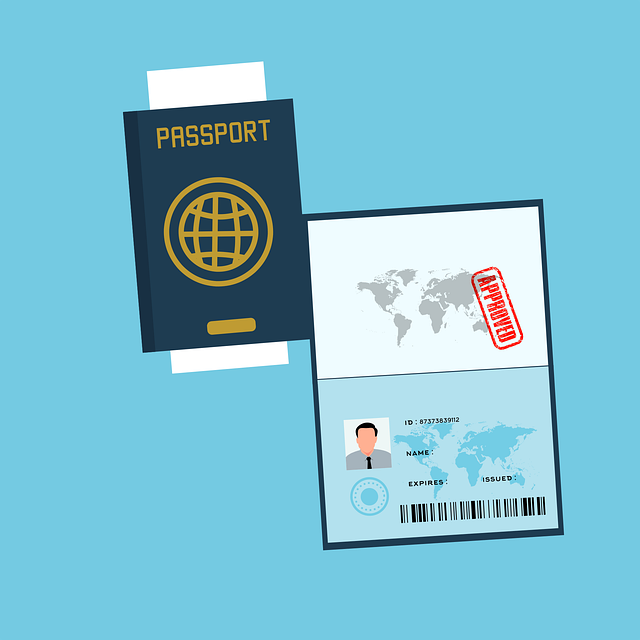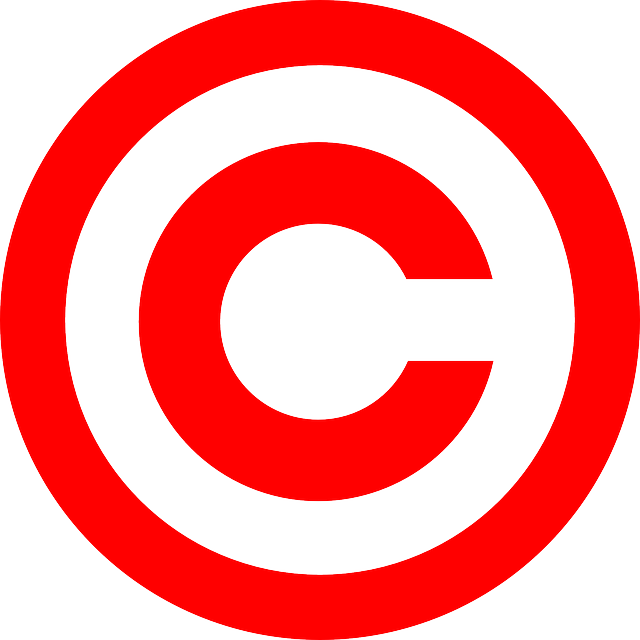TL;DR:
Accurate and compliant UK Intellectual Property Documents translation services are crucial for protecting innovations and original works globally, ensuring legal validity, and facilitating international market access. Specialized translators must combine linguistic proficiency with legal expertise to navigate terminology accuracy, global regulatory differences, and complex IP concepts. Quality assurance measures, including proofreading, transparent pricing, efficient turnaround times, and document certification, ensure translated documents meet the highest standards for use in legal proceedings. Engaging these professionals mitigates risks of errors, safeguarding interests and legal compliance in a globalized landscape. Technological advancements further enhance translation speed, accuracy, and understanding of legal terminology. Case studies demonstrate successful transactions and litigations reliant on precise UK IP document translations.
In today’s globalised landscape, ensuring compliance with UK Intellectual Property (IP) documents during legal proceedings is paramount. Accurate and legally admissible translations are essential for international success, yet challenges abound. This comprehensive guide navigates the intricacies of UK IP law and its document requirements, highlighting the importance of professional translation services. From common pitfalls to best practices, technology’s role in enhancing accuracy, and real-world case studies, we provide a robust process for handling compliant IP documents effectively. Discover how to select reputable translation services and key considerations for diverse IP types, ensuring your legal use remains unassailable.
- Understanding UK Intellectual Property Laws and Their Document Requirements
- The Importance of Accurate Translation for Legal Admissibility
- Common Challenges in Translating IP Documents
- Selecting a Reputable UK IP Document Translation Service
- Best Practices for Ensuring Quality and Consistency
- When to Engage Professional Translators for Legal Purposes
- Key Considerations for Different Types of Intellectual Property
- The Role of Technology in Enhancing Translation Accuracy
- Case Studies: Successful Translations in the IP Sector
- Building a Robust Process for Compliant Document Handling
Understanding UK Intellectual Property Laws and Their Document Requirements

In the UK, intellectual property (IP) laws play a crucial role in protecting and governing innovations, creations, and original works. For documents related to IP, such as patent applications, trademark registrations, or copyright notices, accurate and compliant translation services are essential. These legal documents require not just word-for-word translation but also a deep understanding of the UK’s specific legal framework and terminology.
UK Intellectual Property Documents translation services must ensure that all technical terms and legal nuances are preserved while adapting the content for fluency and naturalness in the target language. This involves more than simply translating words; it entails interpreting the underlying legal concepts and ensuring they remain consistent across languages. By adhering to these requirements, businesses can protect their intellectual property rights effectively, avoiding potential legal pitfalls and ensuring their IP is properly represented in international markets.
The Importance of Accurate Translation for Legal Admissibility

In legal proceedings, especially in international contexts, accurate and reliable translation plays a pivotal role in ensuring compliance with UK Intellectual Property (IP) documents. The admissibility of translated evidence is crucial to the fairness and accuracy of any legal outcome. Therefore, when dealing with IP-related matters, enlisting professional translation services becomes indispensable. These services employ expert translators who are not only fluent in multiple languages but also possess a deep understanding of legal terminology and nuances.
Using UK Intellectual Property Documents translation services that adhere to strict quality standards ensures that the translated materials accurately reflect the original content. This is essential as any errors or omissions could lead to misrepresentations, misunderstandings, or even inadmissibility of evidence in court. Professional translators are well-versed in legal processes and can provide translations that stand up to scrutiny, thereby facilitating smoother navigation through complex IP cases.
Common Challenges in Translating IP Documents

Translating UK intellectual property (IP) documents for legal purposes presents several challenges. One of the primary hurdles is ensuring accuracy and consistency in technical terminology across different languages. IP laws and regulations vary globally, and what constitutes valid documentation in one country might differ significantly from another. Therefore, professional translators must have a deep understanding not only of the source and target languages but also of the legal frameworks involved.
Moreover, the complexity of IP concepts often requires specialized knowledge. Patents, trademarks, copyrights, and trade secrets are just some of the areas where nuances can be easily lost in translation. Using the right terminology and correctly depicting technical drawings or diagrams are crucial for a valid and legally acceptable translated document. This is where reputable UK IP documents translation services excel, employing experienced linguists with legal expertise to navigate these complexities.
Selecting a Reputable UK IP Document Translation Service

When selecting a UK Intellectual Property (IP) Document Translation Service, it’s paramount to opt for a reputable and experienced provider. Look for companies with a proven track record in accurately translating complex IP-related documents while maintaining their legal integrity. Reputable firms will have a team of specialist translators who not only possess expertise in law but also in the specific terminology used within IP documentation. This ensures precise translations that comply with UK laws and regulations.
Additionally, these services should offer quality assurance processes such as proofreading and editing to eliminate any potential errors. Many reputable companies also provide certifications to verify the authenticity of the translated documents, which is crucial for their legal admissibility. When choosing a translation service, consider those that offer transparent pricing structures and efficient turnaround times to cater to your urgent needs without compromising quality.
Best Practices for Ensuring Quality and Consistency

When it comes to legal documents, precision and accuracy are paramount. For UK Intellectual Property (IP) documents translation services, implementing best practices ensures that every translated file maintains its integrity, clarity, and legal validity. Start by employing professional translators with expertise in IP law to guarantee an understanding of technical jargon and nuanced terminology. Consistent use of terminologies across all translations is crucial for maintaining coherence and avoiding confusion.
Additionally, utilizing memory translation tools and glossaries can help maintain consistency in style and tone. These resources ensure that the same terms are rendered identically across multiple documents. Regular quality assurance checks, including proofreading by a second expert, are essential to catch any errors or inconsistencies. This meticulous approach ensures that translated UK IP documents meet the highest standards of excellence and are ready for their intended legal use.
When to Engage Professional Translators for Legal Purposes

When dealing with legal matters, especially those involving international intellectual property (IP) rights, accuracy and precision are paramount. Engaging professional translators for UK Intellectual Property Documents translation services is a strategic decision that ensures compliance and protects your interests. While some minor translations may be manageable, complex legal documents demand the expertise of professionals who understand not only the language but also the intricacies of IP law.
Professional translators bring a unique set of skills to the table. They possess advanced knowledge of both source and target languages, ensuring that terms related to patents, trademarks, copyrights, and licensing agreements are accurately conveyed. Moreover, these experts stay updated on legal terminology and cultural nuances, minimizing the risk of errors or misinterpretations that could have significant legal consequences.
Key Considerations for Different Types of Intellectual Property

When translating IP documents for legal use, understanding the nuances of different types of intellectual property is crucial. Each category, from patents to trademarks and copyrights, has its own unique requirements and challenges. For instance, patent applications demand precise technical language and specific terminology related to innovations and inventions. On the other hand, trademark translations require a keen eye for cultural sensitivities and potential trademark infringements while preserving the essence of brand identity.
UK Intellectual Property Documents translation services must also account for varying legal systems and regulations across jurisdictions. This involves staying abreast of local laws and standards to ensure that translated documents remain legally sound and enforceable. Professional translators with expertise in IP law play a vital role in navigating these complexities, guaranteeing that each element of the intellectual property is accurately and conformally represented in the target language.
The Role of Technology in Enhancing Translation Accuracy

In today’s globalised world, accurate and reliable translations are paramount for businesses and individuals navigating complex legal landscapes. When it comes to UK Intellectual Property Documents translation services, technology plays a pivotal role in enhancing accuracy and ensuring compliance. Advanced machine translation tools, backed by neural networks, have significantly improved the quality of translations over the years. These technologies not only speed up the process but also offer a deeper understanding of linguistic nuances specific to legal terminology.
Moreover, artificial intelligence (AI) algorithms can analyse vast amounts of data in a fraction of the time it would take a human translator. This allows for the identification and application of consistent terminologies across various documents, which is crucial for maintaining coherence and accuracy throughout the translation process. In essence, leveraging technology in UK Intellectual Property Documents translation services not only guarantees higher precision but also ensures that legal documents remain valid and compliant with international standards.
Case Studies: Successful Translations in the IP Sector

When it comes to navigating the complex landscape of UK intellectual property (IP) law, accurate and compliant translations are paramount. Case studies reveal that many successful IP transactions and litigations hinge on the quality and precision of translated documents. Professional translation services specializing in UK IP documents play a crucial role here, ensuring that legal terminology is rendered seamlessly across languages while adhering to local regulations.
These services have fostered a symphony of effective communication in a multicultural business environment. For instance, consider a multinational corporation seeking to expand its patent portfolio across Europe. Accurate translations of patent applications and related documents not only facilitated the process but also ensured compliance with each country’s specific IP laws, ultimately leading to a smoother expansion strategy.
Building a Robust Process for Compliant Document Handling

In today’s globalised business environment, companies often operate across borders, making it crucial to ensure that all legal documents, particularly those related to intellectual property (IP), are handled with precision and compliance. When dealing with UK Intellectual Property Documents translation services, establishing a robust process for compliant document handling is essential. This involves a meticulous approach to every stage of the translation lifecycle, from initial assessment to final delivery.
A key step is implementing rigorous quality control measures. This includes thorough reviews by subject matter experts to ensure accuracy and consistency in technical terms related to IP laws. Additionally, leveraging advanced translation memory tools can help maintain brand voice and terminology standards across multiple projects. Regular training sessions for translators on IP-specific terminology further reinforces the process’s robustness.
When dealing with UK Intellectual Property (IP) documents, ensuring compliance and accuracy through professional translation services is paramount. By understanding the legal requirements, leveraging advanced technology, and adopting best practices, organizations can navigate the complexities of IP document translation effectively. Engaging reputable translation experts specializing in IP ensures admissibility, minimizes risks, and facilitates efficient protection and management of intellectual assets across borders. Choosing a reliable UK IP document translation service is a strategic move to safeguard your innovative creations.



